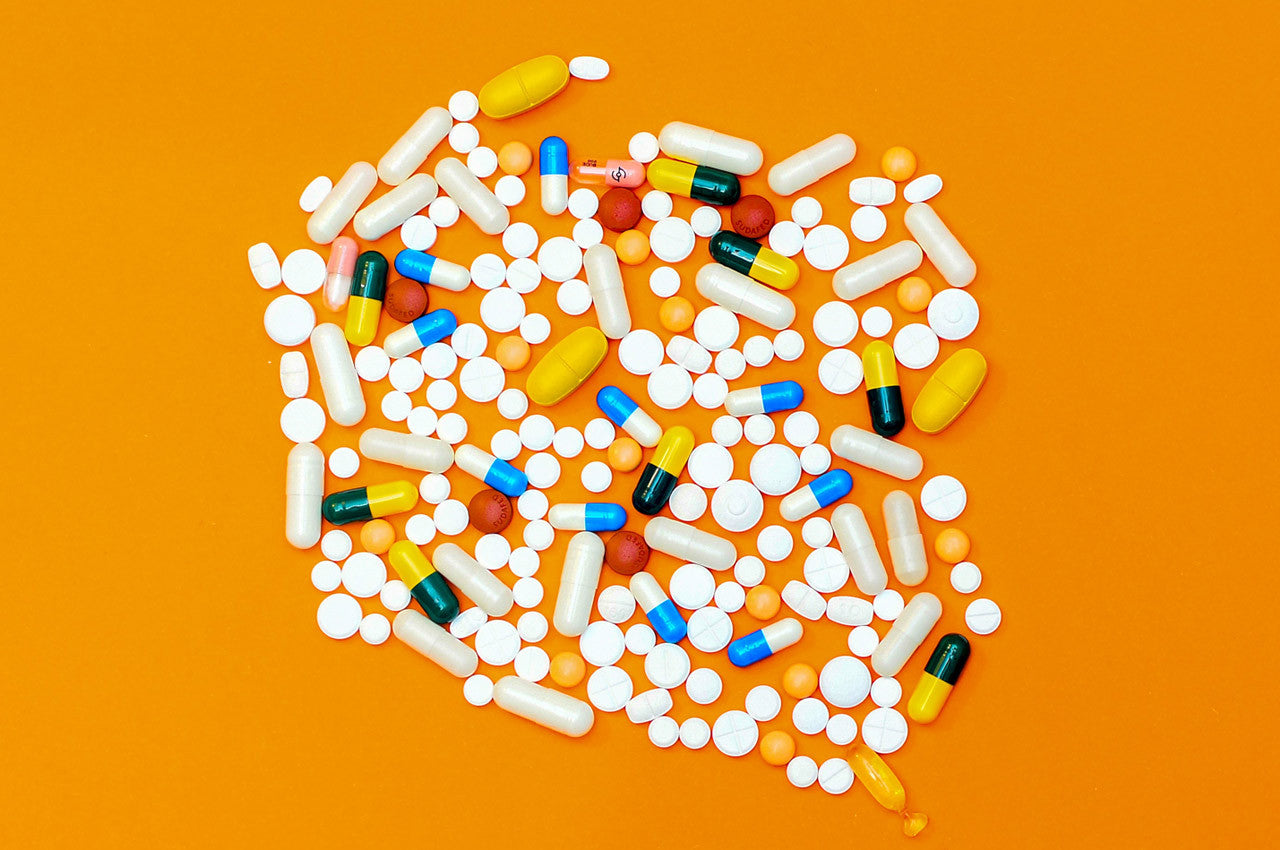
As strange as it may sound, fat consumption can be good for your physique assuming you don't devour a ton of it and you consume the right kinds of fat. I know, we've all heard the "good fat" versus "bad fat" story where "good fat" contributes to a healthy cardiovascular system and so on. But I'm not talking about the influence fat has on aerobic capacity or cardiovascular health— what I'm referring to are certain fats or fatty acids that vigorously stimulate testosterone production, leading to greater gains in muscle mass so you can ultimately reach that seemingly unobtainable bench press goal or pack on a few more pounds of pure muscle.
Although fatty acids primarily function as a major energy source to the cell, they have several other roles. For instance, fatty acids are a major component of the cell membrane where they are incorporated into the cell membrane, primarily as phospholipids. In addition, fatty acids serve as precursors for the biosynthesis of many different fat-like hormones such as testosterone.
Because testosterone is manufactured in the body from fatty acids, logically the more fatty acids you consume the greater amount of testosterone your body will be able to produce. Many studies clearly indicate that low-fat diets result in lower testosterone levels, while diets higher in fat can cause greater levels of testosterone.1
Of course, as your testosterone levels increase due to greater fat consumption, your body fat levels will also increase and greater body fat has been shown to decrease overall testosterone production.2 So trying to increase testosterone levels by increasing fat consumption has its limitations, because too much fat in your diet eventually diminishes testosterone while simultaneously increasing body fat— which doesn't bode well for anyone trying to enhance their physique.
Fortunately, certain fatty acids drive testosterone production— utilizing alternative mechanisms that don't require overconsumption. So consuming an adequate quantity of these specific fatty acids will stimulate testosterone production without increasing body fat.
CANOLA AND OLIVE OIL STIMULATE TESTOSTERONE PRODUCTION
Fatty acids are carboxylic acids with long chains of carbon atoms bonded together. They come in three main forms: saturated, monounsaturated and polyunsaturated. Saturated fatty acids contain no double bonds within the carbon chain, while both monounsaturated and polyunsaturated fatty acids contain one or several double bonds, respectively. The double bonds within the monounsaturated or polyunsaturated fatty acids drastically modify their chemical structures.
As I mentioned earlier, fatty acids are incorporated into all cell membranes including the cell membrane of testicular cells where testosterone is produced. When these different fatty acid types are incorporated into the cell membrane, the difference in their individual chemical structures alters how the cell membrane functions. This difference in cell membrane behavior has been shown in some instances to stimulate cholesterol transport into testicular cells. In view of the fact that cholesterol is converted into testosterone in testicular cells, higher cholesterol levels within testicular cells stimulate testosterone production.
A recent study by Hurtado de Catalfo et al.3 showed that consuming canola and olive oil, which primarily consist of saturated and monounsaturated fatty acids, altered the fatty acid composition within testicular cell membranes— and this change in fatty acid composition within the cell membrane clearly stimulated cholesterol transport into the testicular cells, producing greater testosterone levels. Hurtado de Catalfo et al. also demonstrated that consuming canola and olive oil (saturated and monounsaturated fatty acids) promoted a different type of chemical modification on cholesterol molecules found within testicular cells, compared to the chemical modification on cholesterol when polyunsaturated fats were consumed.The researchers demonstrated that the chemically modified cholesterol molecule produced from polyunsaturated fat consumption was less capable of being converted into testosterone, showing another way that polyunsaturated fats decrease testosterone production.
Finally, Hurtado de Catalfo, et al. demonstrated that diets rich in polyunsaturated fatty acids inhibit the activity of two crucial enzymes involved in testosterone biosynthesis, when compared with saturated and monounsaturated fatty acids. This decreased enzyme activity tightly correlated with lower testosterone production.
Overall, this study indicates that a diet enriched in saturated and monounsaturated fatty acids stimulates testosterone production whereas polyunsaturated fatty acids appear to depress testosterone production.
CLA HAS ANTI-AROMATASE ACTIVITY THAT ELEVATES TESTOSTERONE
Conjugated linoleic (CLA) acid is a mixture of polyunsaturated fatty acids derived from the essential omega-6 fatty acid, linoleic acid. The use of CLA as an ergogenic aid is due to its apparent ability to augment testosterone production, despite the fact that most polyunsaturated fatty acids inhibit testosterone production.
In order to investigate the potential testosterone-enhancing qualities of CLA, Macaluso et al.4 looked at the influence that CLA supplementation had on testosterone levels in humans before and after resistance exercise.Ten resistance-trained male subjects completed three weeks of resistance training, with some subjects receiving six grams of CLA per day and the other subjects receiving a placebo.The results show that taking CLA in combination with resistance exercise caused a large increase in total testosterone. Although this study suggests that CLA promotes testosterone synthesis, the precise molecular mechanism was not elucidated.
Interestingly, another study by Chen et al.5 may have uncovered the molecular details concerning CLA's ability to increase testosterone production by inhibiting the aromatase enzyme that directly converts testosterone into the estrogen-like molecule estradiol. CLA's ability to inhibit the aromatase enzyme and prevent the conversion of testosterone into estradiol would directly lead to greater quantities of testosterone.
EPA INHIBITS TESTOSTERONE PRODUCTION
As many polyunsaturated fats have been shown to diminish testosterone production, eicosapentaenoic acid (EPA) is no exception— although EPA may reduce testosterone in a novel way. Since many lines of evidence show that leptin directly decreases testosterone production and fatty acids stimulate leptin levels, a study by Perez-Matute et a1.6 investigated whether the polyunsaturated fatty acid EPA could also stimulate leptin and diminish testosterone.
In order to determine the direct effects of EPA on leptin secretion, isolated rat adipocytes were incubated with EPA at increasing concentrations. As EPA levels were increased, leptin expression and secretion also increased by more than 70 percent. Furthermore, not only did EPA increase leptin secretion but it also increased glucose uptake and oxidation.This increase in glucose oxidation would subsequently decrease anaerobic oxidation of glucose, producing less lactic acid. Since lactic acid has been shown in several studies7 to increase testosterone production, the lower lactic acid would also diminish testosterone. Together, the results suggest that EPA raises leptin levels and increases glucose oxidation—both lowering testosterone levels.
In summary, both saturated and monounsaturated fatty acids directly and systematically boost testosterone while polyunsaturated fats by and large inhibit testosterone production. However, some polyunsaturated fatty acids, such as arachidonic acid, an omega-6 derived polyunsaturated fatty acids, do support testosterone production.
By Micahel J. Rudolph, Ph.D. From Muscular Development
References:
1. FungweTV, et al. Stimulation of fatty acid biosynthesis by dietary cholesterol and of cholesterol synthesis by dietary fatty acid. J Lipid Res 1994;35(2):311-8. 2. Hakonsen LB, et al. Does weight loss improve semen quality and reproductive hormones? Results from a cohort of severely obese men. Reprod Health 2011;8:24. 3. Hurtado de Catalfo GE, de Alaniz MJ, et al. Influence of commercial dietary oils on lipid composition and testosterone production in interstitial cells isolated from rat testis. Lipids 2009;44(4):345-57 4. Macaluso F, et al. Effect of conjugated linoleic acid on testosterone levels in vitro and in vivo after an acute bout of resistance exercise. J Strength Cond Res 2012;26(6):1667-74. 5. Chen S, et al. Anti-aromatase activity of phytochemicals in white button mushrooms (Agaricus bisporus). Cancer Res, 2006;66(24):12026-34. 6. Perez-Matute P, et al. Eicosapentaenoic fatty acid increases leptin secretion from primary cultured rat adipocytes: role of glucose metabolism. Am J Physiol Regul Integr Comp Physiol 2005;288(6):R1682-8. 7. Kon M, et al., Effects of acute hypoxia on metabolic and hormonal responses to resistance exercise. Med Sci Sports Exerc 2010;42(7):1279-85.























































